Audi Q4 e-tron VS BMW iX1
In the competitive electric SUV market, the Audi Q4 e-tron and BMW iX1 stand out with their unique blend of performance and luxury. The Q4 e-tron impresses with its spacious interior and cutting-edge technology, while the iX1 offers a more dynamic driving experience and sporty design cues. Both models reflect their manufacturers' commitment to sustainability without compromising on style or comfort.
Audi Q4 e-tron
The Audi Q4 e-tron seamlessly combines sustainable driving with premium comfort, embodying the brand's commitment to electric mobility. Its sleek design and spacious interior create an inviting atmosphere, perfect for those who appreciate both style and practicality. With a focus on innovative technology, the Q4 e-tron offers a dynamic driving experience that appeals to modern drivers seeking eco-friendly alternatives.
detailsBMW iX1
The BMW iX1 stands out as a versatile addition to the electric vehicle market, seamlessly combining compact dimensions with advanced electric technology. Its sophisticated design elements and premium interiors ensure a luxurious driving experience, while the vehicle's performance focuses on delivering both efficiency and agility. With enhanced connectivity features and an emphasis on sustainability, this model represents a significant step forward in BMW's commitment to a greener future.
detailsAudi Q4 e-tron vs BMW iX1: The Electric SUV Showdown
The electric vehicle market continues to grow, with more manufacturers entering the race for dominance. Among the leading contenders are the Audi Q4 e-tron and the BMW iX1, two distinguished electric SUVs that promise performance, style, and cutting-edge technology. In this article, we will delve into a detailed comparison of these two automotive marvels, examining their technical specifications, innovations, and overall capabilities.
Power and Performance
Starting with the powertrains, the Audi Q4 e-tron offers a range of engine options, peaking at a robust 340 HP and 679 Nm of torque in its top variant. It showcases impressive acceleration, achieving 0-100 km/h in just 5.4 seconds, while delivering a maximum speed of 180 km/h. The Q4 e-tron is available in both rear-wheel and all-wheel drive configurations, offering greater control and traction.
On the other hand, the BMW iX1 features a slightly lower power output, with its top model delivering 313 HP and 494 Nm of torque. The iX1 can sprint from 0-100 km/h in just 5.6 seconds, closely competing with the Q4 e-tron. Its front-wheel and all-wheel drive options provide versatility and a lively driving experience. With a maximum speed of 180 km/h, both models are neck-and-neck in terms of performance potential.
Range and Efficiency
Range anxiety is a common concern for electric vehicle owners, but both the Audi Q4 e-tron and BMW iX1 deliver impressive electric ranges. The Q4 e-tron has various configurations, with the most efficient variant boasting a range of up to 554 km on a single charge. Its consumption rates vary from 15.9 to 17.4 kWh/100 km, making it a viable option for longer trips.
The BMW iX1, while slightly less capable in terms of range, still shines with an impressive 463 km range for its best variant. Its consumption is competitive, averaging around 15.8 kWh/100 km. Both vehicles are equipped with advanced battery management systems to optimize performance and maintain efficiency.
Interior Comfort and Space
Inside, both the Audi Q4 e-tron and BMW iX1 prioritize comfort and technology. The Q4 e-tron features a spacious interior with a trunk capacity of 520-535 liters and ample headroom, making it a practical choice for families and travelers alike. Audi's virtual cockpit and intuitive infotainment system add a modern touch to its interior.
The BMW iX1, while slightly more compact, offers 490 liters of trunk space and a thoughtfully designed cabin that emphasizes luxury and driver engagement. The use of high-quality materials and an advanced iDrive system ensures a premium experience for all passengers.
Innovative Features
Both models bring a host of innovative features to the table. The Audi Q4 e-tron incorporates cutting-edge driver assistance systems, including adaptive cruise control, lane-keeping assist, and a 360-degree camera system, enhancing safety and convenience.
Meanwhile, the BMW iX1 is packed with the latest technology, featuring a comprehensive suite of connectivity options, such as smartphone integration and an advanced navigation system. Its intelligent driving assistance system helps manage driving conditions and enhances overall safety.
Conclusion: Which SUV Reigns Supreme?
In conclusion, both the Audi Q4 e-tron and BMW iX1 are outstanding contenders in the electric SUV market, each bringing unique strengths and innovations. The Q4 e-tron excels with its superior range and powerful performance, making it an excellent option for long-distance drivers. The BMW iX1, on the other hand, offers a luxury experience and advanced technology, appealing to those who prioritize comfort and cutting-edge features.
Ultimately, the choice between these two electric SUVs will boil down to personal preference, driving needs, and brand loyalty. Whether you prefer the Audi or the BMW, you're guaranteed a thrilling ride into the electric future.
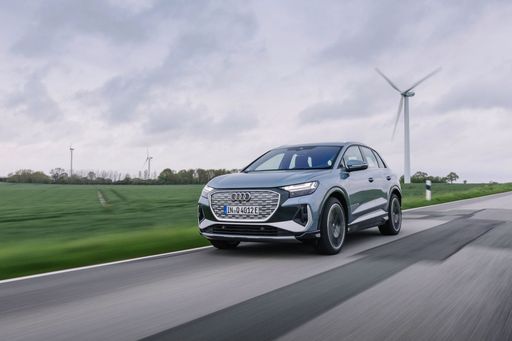 @ audi-mediacenter.com
@ audi-mediacenter.com
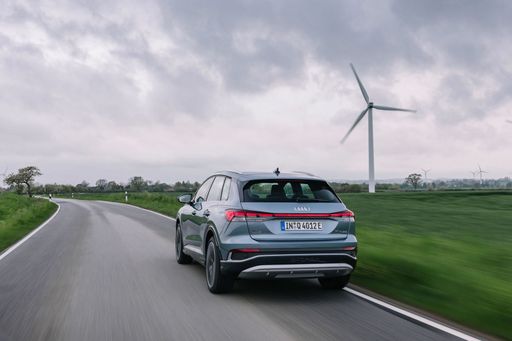 @ audi-mediacenter.com
@ audi-mediacenter.com
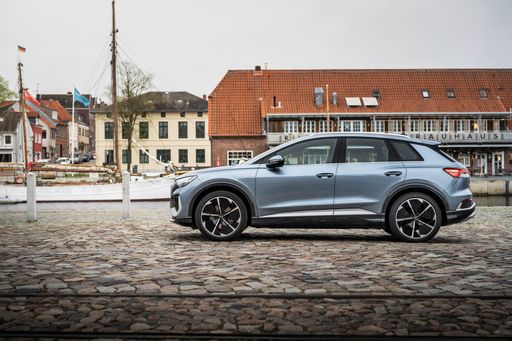 @ audi-mediacenter.com
@ audi-mediacenter.com
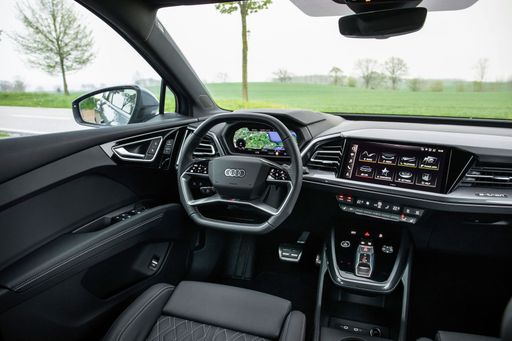 @ audi-mediacenter.com
@ audi-mediacenter.com
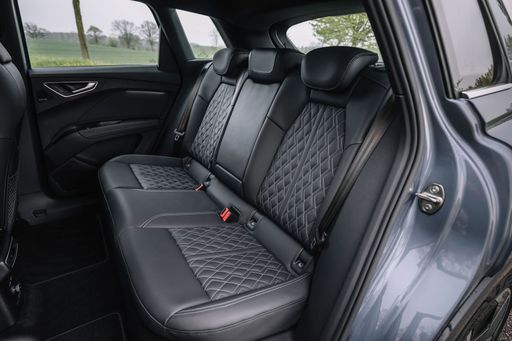 @ audi-mediacenter.com
@ audi-mediacenter.com
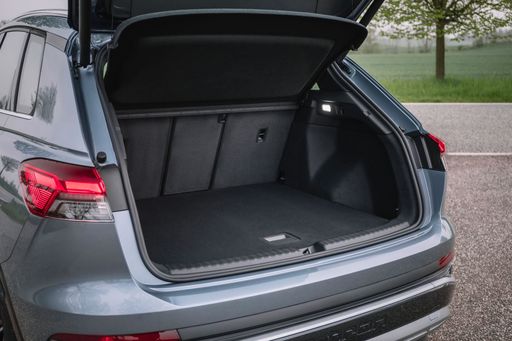 @ audi-mediacenter.com
@ audi-mediacenter.com
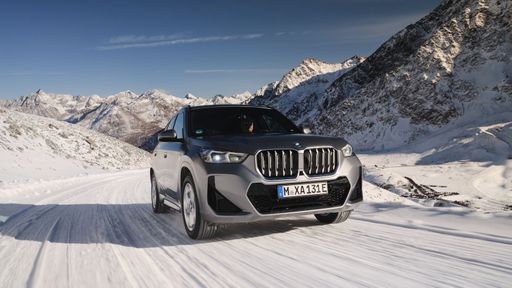 @ press.bmwgroup.com
@ press.bmwgroup.com
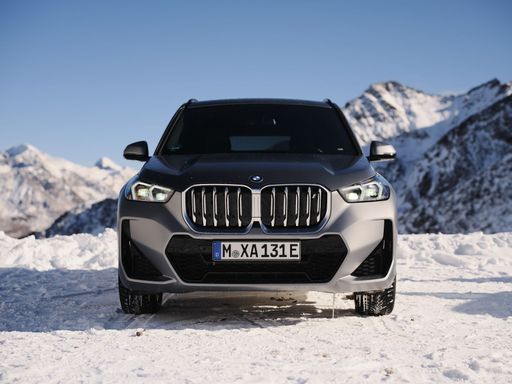 @ press.bmwgroup.com
@ press.bmwgroup.com
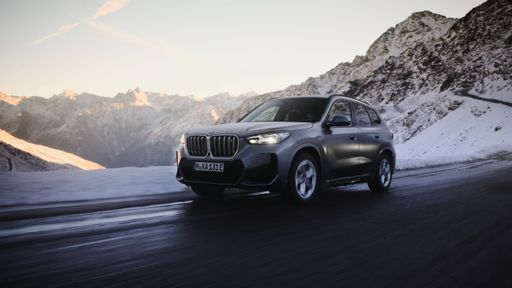 @ press.bmwgroup.com
@ press.bmwgroup.com
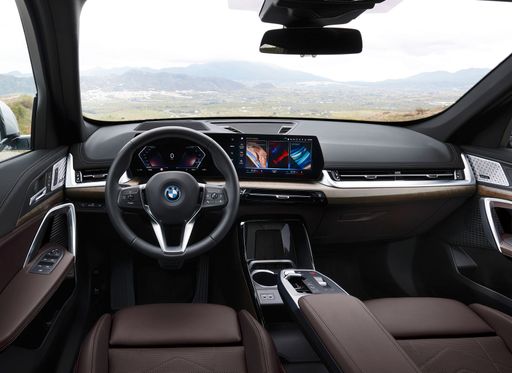 @ press.bmwgroup.com
@ press.bmwgroup.com
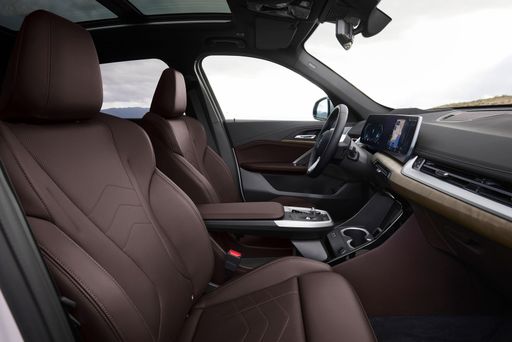 @ press.bmwgroup.com
@ press.bmwgroup.com

|

|
|
|
|
Costs and Consumption |
|
|---|---|
|
Price
about 39100 - 58800
£
|
Price
about 41500 - 54100
£
|
|
Consumption L/100km
-
|
Consumption L/100km
-
|
|
Consumption kWh/100km
15.9 - 17.4
kWh
|
Consumption kWh/100km
15.8 - 17.1
kWh
|
|
Electric Range
350 - 554
km
|
Electric Range
436 - 463
km
|
|
Battery Capacity
52 - 77
kWh
|
Battery Capacity
64.8
kWh
|
|
co2
0
g/km
|
co2
0
g/km
|
|
Fuel tank capacity
-
|
Fuel tank capacity
-
|
Dimensions and Body |
|
|
Body Type
SUV
|
Body Type
SUV
|
|
Seats
5
|
Seats
5
|
|
Doors
5
|
Doors
5
|
|
Curb weight
1990 - 2235
kg
|
Curb weight
1940 - 2085
kg
|
|
Trunk capacity
520 - 535
L
|
Trunk capacity
490
L
|
|
Length
4588
mm
|
Length
4500
mm
|
|
Width
1865
mm
|
Width
1845
mm
|
|
Height
1614 - 1632
mm
|
Height
1616
mm
|
|
Payload
510 - 515
kg
|
Payload
495
kg
|
Engine and Performance |
|
|
Engine Type
Electric
|
Engine Type
Electric
|
|
Transmission
Automatic
|
Transmission
Automatic
|
|
Transmission Detail
Reduction Gearbox
|
Transmission Detail
Reduction Gearbox
|
|
Drive Type
Rear-Wheel Drive, All-Wheel Drive
|
Drive Type
Front-Wheel Drive, All-Wheel Drive
|
|
Power HP
170 - 340
HP
|
Power HP
204 - 313
HP
|
|
Acceleration 0-100km/h
5.4 - 9
s
|
Acceleration 0-100km/h
5.6 - 8.6
s
|
|
Max Speed
160 - 180
km/h
|
Max Speed
170 - 180
km/h
|
|
Torque
310 - 679
Nm
|
Torque
250 - 494
Nm
|
|
Number of Cylinders
-
|
Number of Cylinders
-
|
|
Power kW
125 - 250
kW
|
Power kW
150 - 230
kW
|
|
Engine capacity
-
|
Engine capacity
-
|
|
Top speed
160 - 180
km/h
|
Top speed
170 - 180
km/h
|
General |
|
|
Model Year
2023 - 2024
|
Model Year
2022 - 2023
|
|
CO2 Efficiency Class
A
|
CO2 Efficiency Class
A
|
|
Brand
Audi
|
Brand
BMW
|
Audi Q4 e-tron
Introducing the Audi Q4 e-tron: The Future of Electric Mobility
The Audi Q4 e-tron marks a significant leap forward in the world of electric vehicles, combining luxury, performance, and cutting-edge technology into one dynamic package. As part of Audi's e-tron family, this SUV not only offers a sustainable alternative to traditional fuels but does so with the unmistakable elegance and comfort that the brand is renowned for.
Engine and Performance: Power Meets Efficiency
The Q4 e-tron is available in various configurations, showcasing Audi's commitment to offering choices suited to different driving styles and needs. With power outputs ranging from 170 PS to 340 PS, the Q4 e-tron allows enthusiasts and casual drivers alike to enjoy a spirited driving experience.
One of the standout features of the Q4 e-tron is its efficient energy consumption. Models achieve consumption figures as low as 15.9 kWh/100 km, enabling impressive ranges of up to 554 km on a single charge. This makes the Q4 e-tron not only a competent urban commuter but also a capable vehicle for longer journeys. The acceleration from 0-100 km/h varies between 5.4 and 9 seconds, depending on the configuration, allowing drivers to enjoy a thrilling performance without compromising on efficiency.
Battery Technology: Powering the Future
Equipped with a battery capacity ranging from 52 kWh to 77 kWh, the Audi Q4 e-tron features impressive charging capabilities. The intelligent battery management system optimally uses the stored energy, balancing performance with efficiency. This innovative approach ensures that owners can maximise the electric range without the need for frequent recharges.
Innovative Interior and Technology
Inside the Audi Q4 e-tron, luxurious materials and modern design come together seamlessly. The spacious cabin is designed for five passengers, offering ample legroom and luggage space of 520 to 535 litres, making it practical for everyday use. The digital cockpit, complete with a high-resolution display, provides essential information at a glance, while the intuitive infotainment system seamlessly integrates with smartphones for an enhanced connectivity experience.
Sustainability and Driving Dynamics
Sustainability is at the core of the Audi Q4 e-tron's design. The vehicle not only produces zero emissions but also incorporates recycled materials in its manufacturing processes, showcasing Audi's commitment to eco-friendly production. Furthermore, with optional all-wheel drive capabilities available, the Q4 e-tron ensures excellent traction and stability, regardless of road conditions, making every drive enjoyable and secure.
Conclusion: A Symbol of Electric Elegance
The Audi Q4 e-tron epitomises the brand's drive towards a more sustainable future while maintaining the performance and luxury that customers expect. With its diverse range of configurations, advanced technology, and commitment to efficiency, the Q4 e-tron is not just another electric vehicle—it's a bold statement in automotive innovation. As we move forward, this vehicle is set to become a benchmark in the electric SUV segment, offering an exemplary blend of comfort, performance, and technology.
BMW iX1
A New Era of Innovation: Meet the BMW iX1
The automotive world has seen a seismic shift towards sustainability and electrification, and BMW has solidified its place in this evolution with the introduction of the BMW iX1. As a fully electric SUV, the iX1 serves as a testament to how luxury, performance, and eco-consciousness can harmoniously blend in the modern automotive landscape.
Exquisite Design Meets Purposeful Engineering
The BMW iX1 is not just an electric vehicle; it's an embodiment of cutting-edge design and technology. With its bold SUV silhouette, the iX1 boasts dimensions of 4500 mm in length, 1845 mm in width, and 1616 mm in height, providing a spacious yet agile presence on the road. Its dynamic aesthetic is complemented by an aerodynamic form that enhances efficiency, offering a drag coefficient that rivals traditional SUV models.
Powertrain and Performance Specifications
Beneath the hood of the BMW iX1 lays an electric motor that signifies the future of automotive engineering. Available variants offer power outputs ranging from 204 to 313 PS (150 to 230 kW). The iX1 comes with either a front-wheel or all-wheel drivetrain, catering to different driving preferences. The xDrive30 variant, in particular, features all-wheel drive, delivering up to 313 PS for those who crave enhanced traction and control.
With a commendable electric consumption of 15.8 to 17.1 kWh per 100 km, the iX1 strikes a fine balance between power and efficiency. Its acceleration stats are equally impressive, with the ability to go from 0-100 km/h in as little as 5.6 seconds. This ensures that while it's eco-friendly, it does not compromise on the exhilaration factor. The vehicle can reach a top speed range between 170 and 180 km/h.
A Journey Without Interruptions: Range and Battery Life
The iX1's battery, boasting a capacity of 64.8 kWh, provides a substantial driving range of 436 to 463 km on a single charge, depending on the variant. This means long road trips are not only feasible but enjoyable, eliminating the range anxiety often associated with electric vehicles.
Comfort and Technological Interior
Inside, the iX1 exemplifies BMW’s commitment to luxury and innovation. It’s a five-seater SUV designed with comfort at its forefront, featuring advanced technological interfaces that enrich the driving experience. The spacious cabin offers 490 litres of boot space, ensuring practicality without sacrificing style.
In terms of monthly costs, owning an iX1 can range between €1,147 and €1,453, considering the zero-emission appeal with a CO2 efficiency class of A.
The Financial Aspect of Sustainability
With a price range from €48,400 to €63,140, the BMW iX1 isn't just a vehicle—it's an investment in sustainable motoring. Factoring in a cost of around 45.9 to 58.1 cents per kilometre, the iX1 offers an economically viable option for the eco-conscious driver.
Conclusion: The Future Is Now
The BMW iX1 stands as a beacon of what the future holds for zero-emission vehicles. With a melding of sustainability, performance, and luxury, it's not just a car, but a glimpse into the next chapter of automotive history.
